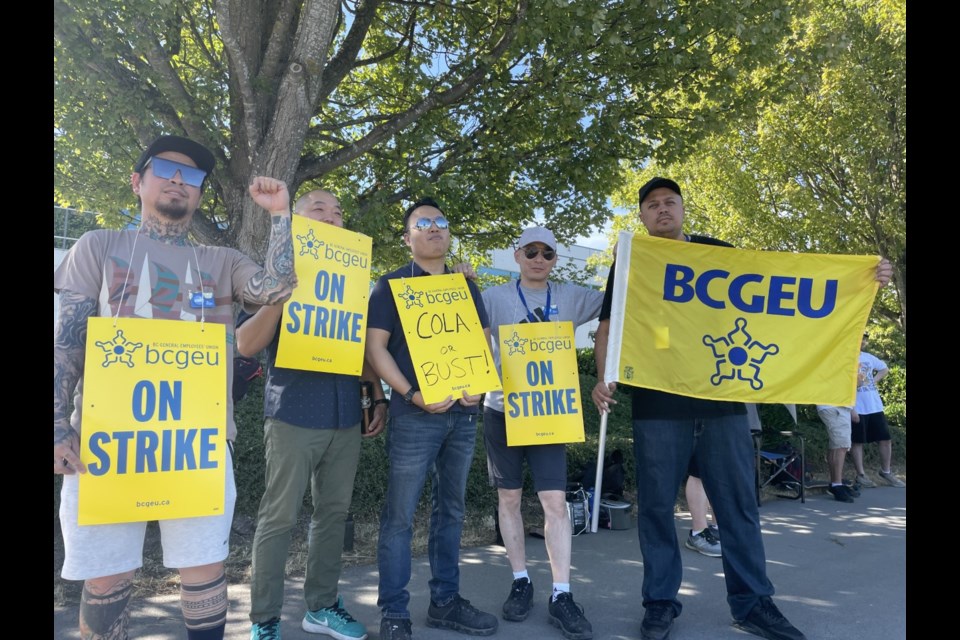Picket lines were set up at the Richmond Cannabis Distribution Centre on Monday afternoon as the union representing its workers pushes for higher wages and protection against inflation.
This is the first action announced by the BC General Employees Union (BCGEU – formerly, the BC Government Employees' & Service Union) after an overwhelming majority of its members voted in favour of striking.
While BCGEU president Stephanie Smith, a Richmond resident, said the union wants a strike that is “thoughtful” and “impactful,” they weighed the fact liquor sales are a “huge revenue source” for the government.
“Strikes by definition are meant to cause heartburn for the employer and that’s one of the things we took into consideration,” she added.
How long the strike continues is “up to the employer,” Smith said, and, if needed, strikes will escalate into other areas.
BCGEU members currently engaged in job action include those working in sheriff and correctional services, wildland fire fighters, social workers as well as liquor and cannabis retail workers.
Those sectors deemed essential workers, however, won’t be allowed to go on strike, but will take part in other actions like button-wearing campaigns, Smith explained.
The BCGEU contract ended March 31 but negotiations for a new one, initiated already in February, stalled on April 6.
Ninety-five per cent of members voted to support job action on June 22 and, on Friday, the union issued a 72-hour strike notice.
The government is offering an 11-per-cent wage increase over three years, but the union is arguing that with inflation so high, this increase should be higher.
The last wage hike was two per cent in April 2021, Smith noted, but inflation has risen dramatically since then.
“(Our members) have been losing ground this entire year,” she said.
This is why the union isn’t just asking for higher wages, they want protection against inflation, that is a “cost of living adjustment” built into the contract.
To retain workers in the public sector, wages need to keep up, Smith said, noting an ad she saw for a dishwasher in Whistler was offering $35/hour plus tips.
In contrast, BC Wildland fire fighters earn $24 per hour, according to Smith.
“The public sector are the ones who kept the lights and the wheels turning over the past two years, they’re going to be vitally important for our economic recovery in the future,” Smith said. However, to recruit and retain public-sector workers, wages have to remain “competitive,” she added.
BCGEU has 85,000 members, but those affected by the current job action are provincial government employees, totalling 33,000.
-With files from Castanet

